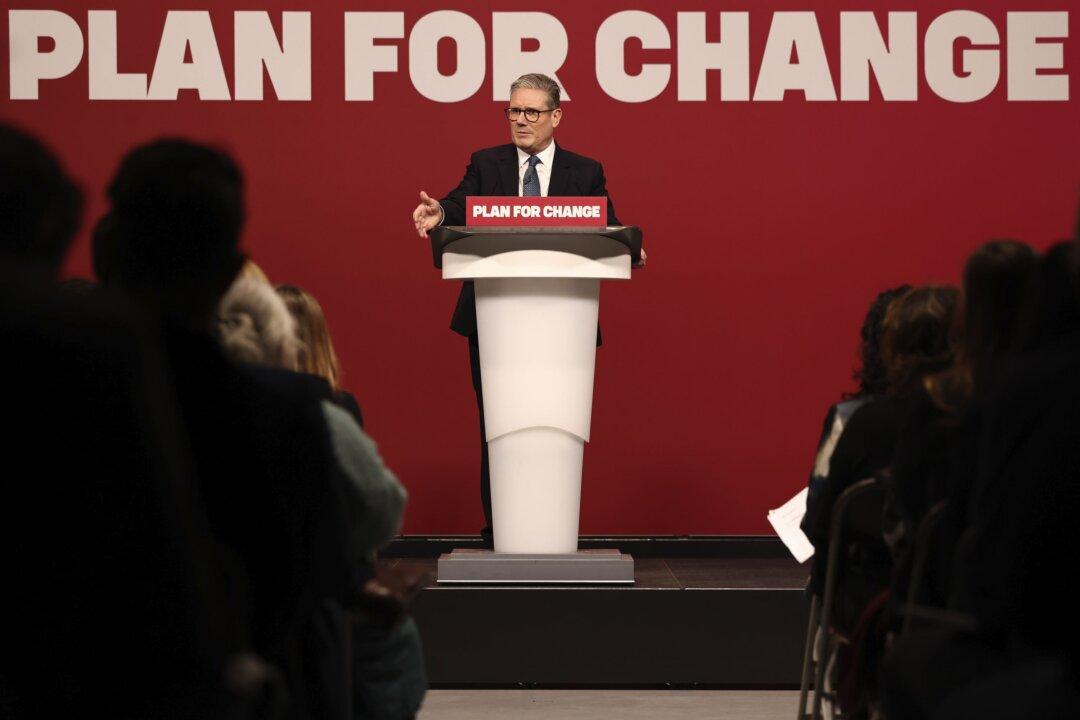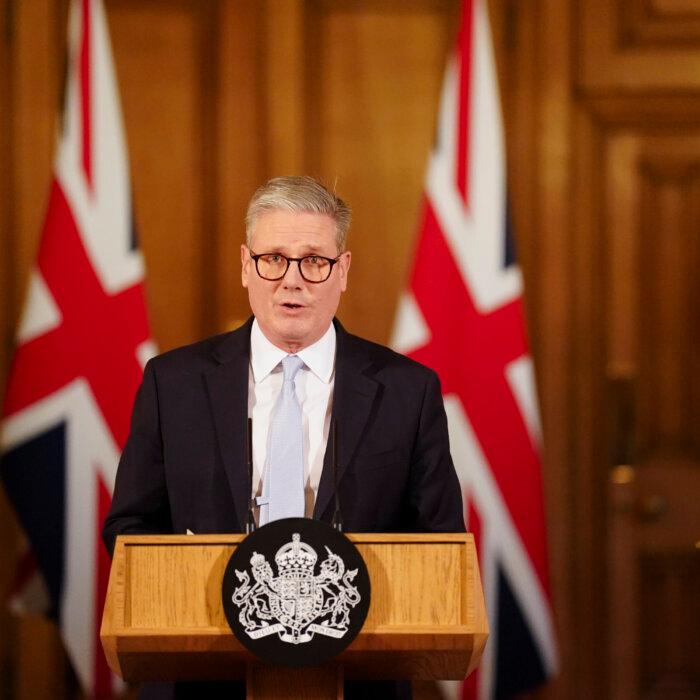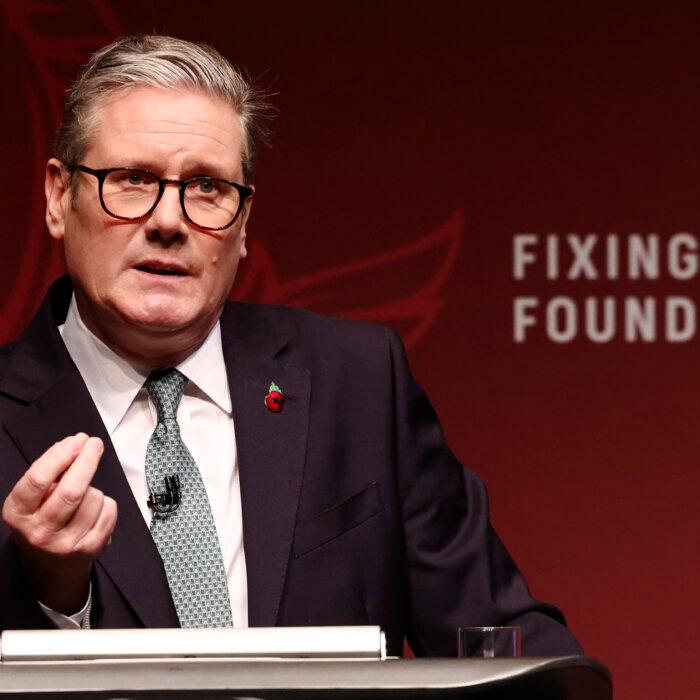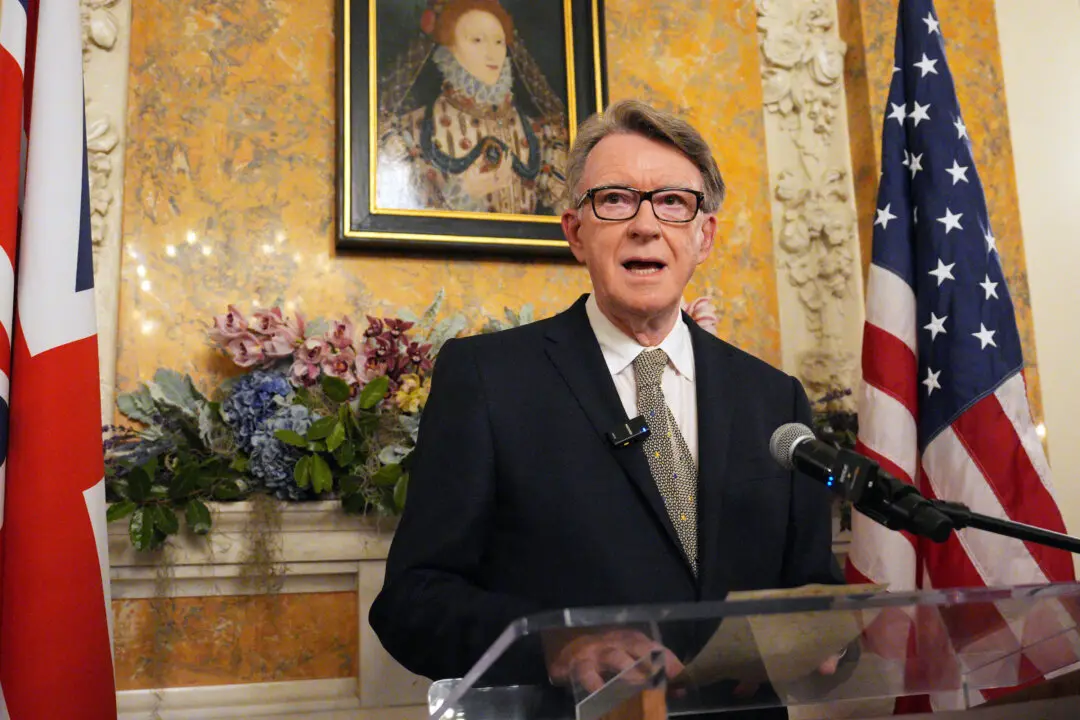Prime Minister Sir Keir Starmer set out a new six-point blueprint, modifying earlier targets including the drive for net zero, in what he said would be the “next phase” of his Labour government.
Starmer delivered his speech at the famous Pinewood Hill film studios in Buckinghamshire on Dec. 5 in what the opposition branded an “emergency reset” of previous pledges, just five months into the new administration.
The document accompanying the speech revealed that Labour’s promise to deliver 100 percent “clean power” by 2030 has been diluted, pledging instead that the UK will be “on track to at least 95 percent clean power by 2030.”
‘Exactly the Same’?
Questioned by reporters after his speech, Starmer said: “The mission hasn’t changed from the day I launched it nearly two years ago in terms of where we need to get to on clean energy by 2030. It is exactly the same as it always was.”She added that in her view, the pledge has altered because Starmer “knows” the drive for net zero is incompatible with Labour’s promise to cut household energy bills by £300 a year.
The prime minister repeated his pledge to raise living standards for “working people” by the end of the Parliament, and he rebuked suggestions that he was watering down economic targets set in Labour’s election manifesto.
He said that growth must be “felt by everyone, everywhere” while insisting his long-term aim remained to make the UK the fastest-growing economy among the G7 nations, although this target was not mentioned in the new document.
Writing in the foreword to his “plan for change,“ Starmer promised “a relentless focus on the priorities of working people,” backed by “a new approach to wealth creation.”
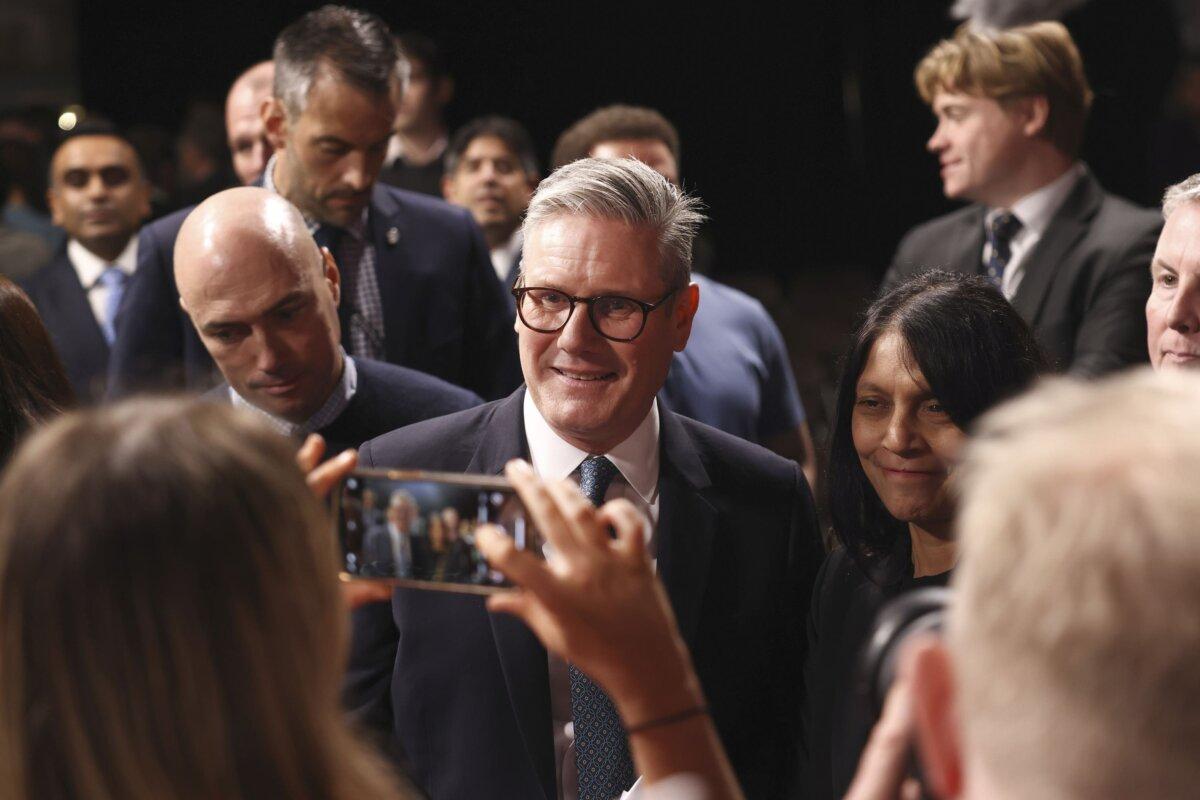
‘Tepid Bath of Managed Decline’
Accusing the senior civil service at Whitehall of becoming “comfortable” with failure, he promised “a profound cultural shift away from a declinist mentality” as well as honesty about the “trade-offs” required to achieve his aims.“I do think that too many people in Whitehall are comfortable in the tepid bath of managed decline,” Starmer said.
“[They] have forgotten, to paraphrase JFK, that you choose change not because it’s easy, but because it’s hard.
“I totally get that when trust in politics is so low, we must be careful about the promises we make, but across Whitehall and Westminster that’s been internalised as ‘don’t say anything, don’t try anything too ambitious, set targets that will happen anyway.'”
Referring to the years of austerity implemented by the previous Conservative-led government from 2010, he said: “We know, after the sacrifices people made during the past 14 years, that it will be hard for working people to hear politicians ask them to come together for their country again.
6 Tangible Targets
Alongside the soundbites, there were six tangible targets set, with the prime minister saying the “milestone” on living standards would be measured in terms of disposable income and gross domestic product per head.As well as the energy target, Starmer pledged to build 1.5 million homes in England—although there was no specific target regarding numbers of social homes—and to fast-track planning decisions on at least 150 major economic infrastructure projects, intended to boost the economy.
Starmer’s blueprint pledges to ensure that 92 percent of patients wait no longer than 18 months for NHS treatment, that there is a named police officer for every neighbourhood, and that 75 percent of children start school at the developmental level they should be at.
There was no mention in the speech of harms caused by lockdowns, such as that some young children now suffer language and other developmental delays, or of the economy, but Starmer instead praised the British people for “uniting” in the face of “a deadly virus.”
The prime minister also said that the UK public has “never wavered in its support for Ukraine.”
Questioned by reporters on the fact that an immigration target was not listed among the milestones, Starmer said he intended to drive down both legal and illegal immigration, adding that the previous government’s Rwanda scheme, now scrapped, was a “gimmick” and that “a serious plan” was needed instead.
The document says that the government is stepping up efforts to tackle people smuggling gangs to curb illegal immigration. In terms of reducing legal migration, Labour says it is tackling the skills shortages in the UK, reforming its “approach to the labour market” and “clamping down on employers who exploit the visa system.”
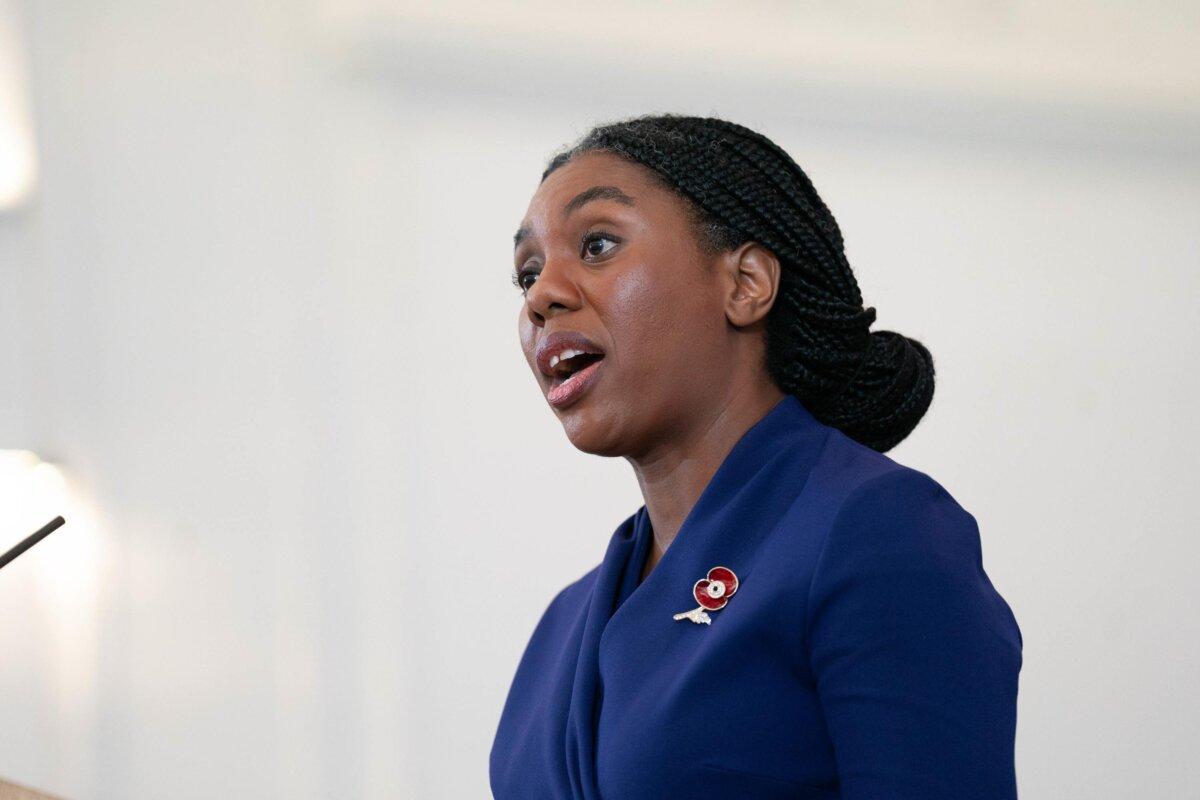
Badenoch added that the blueprint contains “nothing concrete on immigration,” which she said is because Labour “have no plan to control numbers.”
She also noted that Starmer’s manifesto pledge to achieve the fastest growth among G7 countries in this Parliament is not mentioned in the latest document and claimed this is “because of the hit to the economy from the Budget.”
Badenoch added that “costly” plans for energy decarbonisation had been “watered-down—while poor pensioners lose their winter fuel payments.”
On Starmer’s pledge for more community police officers, the Tory leader said that “fewer than a third of Labour’s 13,000 neighbourhood police are actually new police officers.”
‘Muddle of Metaphors’
Responding to the speech in a statement, TaxPayers’ Alliance CEO John O’Connell said: “The prime minister’s muddle of metaphors can’t hide the fact that this is little more than a reheated version of previous speeches.“Keir Starmer has correctly identified some of the core issues facing this country, including the lethargic nature of Whitehall. But rather than taking the difficult steps to solve them, he’s delivering government by platitude.
“Instead of subjecting taxpayers to tedious monologues, he should focus on the reform and growth that they deserve.”
